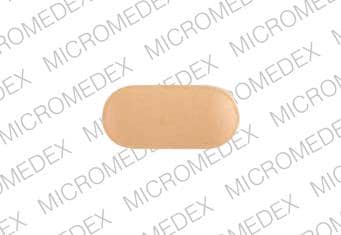What is Epivir-HBV?
Epivir‑HBV is a prescription medicine used to treat long-term (chronic) hepatitis B virus (HBV) when the disease is progressing and there is liver swelling (inflammation).
It is not known if Epivir-HBV is safe and effective in:
- people with chronic HBV who have a severely damaged liver that is unable to work properly (decompensated liver disease)
- people with HIV-1, hepatitis C virus, or hepatitis D (delta) virus
- people who have had a liver transplant
- children with chronic HBV less than 2 years of age
Epivir-HBV does not stop you from spreading HBV to others by sex, sharing needles, or being exposed to your blood. Avoid doing things that can spread HBV infection to others.
What is the most important information I should know about Epivir-HBV?
Epivir-HBV can cause serious side effects, including:
- Worsening liver disease. Your hepatitis B infection may become worse after stopping treatment with Epivir-HBV. Worsening liver disease can be serious and may lead to death. If you stop treatment with Epivir-HBV, your healthcare provider will need to check your health and do blood tests to check your liver for at least several months after you stop taking Epivir-HBV.
- Risk of HIV-1 resistance in people with unknown HIV-1 infection or in people with untreated HIV-1 infection. If you have or get HIV-1 (Human Immunodeficiency Virus type 1) that is not being treated with medicines while taking Epivir-HBV, the HIV-1 virus may develop resistance to certain HIV-1 medicines and become harder to treat.
Your healthcare provider should offer you counseling and testing for HIV-1 infection before you start treatment for hepatitis B with Epivir-HBV and during treatment.
Epivir-HBV tablets and Epivir‑HBV oral solution contain a lower dose of lamivudine than other medicines that contain lamivudine and are used to treat HIV-1 infection. - Resistant Hepatitis B Virus (HBV). The hepatitis B virus can change (mutate) during your treatment with Epivir-HBV and become harder to treat (resistant). If this happens, your liver disease can become worse and may lead to death. Tell your healthcare provider right away if you have any new symptoms.
Who should not take Epivir-HBV?
Do not take Epivir-HBV:
- if you are allergic to lamivudine or any of the ingredients in Epivir-HBV. See the end of this Patient Information leaflet for a complete list of ingredients in Epivir-HBV.
What should I tell my healthcare provider before taking Epivir-HBV?
Before taking Epivir-HBV, tell your healthcare provider about all of your medical conditions, including if you:
- have HIV-1 infection
- have kidney problems
- have diabetes. Each 20-mL dose (100 mg) of Epivir-HBV oral solution contains 4 grams of sucrose.
- are pregnant or plan to become pregnant. It is not known if Epivir-HBV will harm your unborn baby.
Pregnancy Registry. There is a pregnancy registry for women who take antiviral medicines during pregnancy. The purpose of this registry is to collect information about the health of you and your baby. Talk to your healthcare provider about how you can take part in this registry. - are breastfeeding or plan to breastfeed. Epivir-HBV can pass into your breast milk and may harm your baby. You and your healthcare provider should decide if you will take Epivir-HBV or breastfeed.
Tell your healthcare provider about all the medicines you take, including prescription and over-the-counter medicines, vitamins, and herbal supplements. Some medicines interact with Epivir-HBV. Keep a list of your medicines to show your healthcare provider and pharmacist.
- You can ask your healthcare provider or pharmacist for a list of medicines that interact with Epivir-HBV.
- Do not start taking a new medicine without telling your healthcare provider. Your healthcare provider can tell you if it is safe to take Epivir-HBV with other medicines.
Epivir-HBV should not be taken if you also take other medicines that contain lamivudine or emtricitabine.
How should I take Epivir-HBV?
- Take Epivir-HBV exactly as your healthcare provider tells you to take it.
- If you miss a dose of Epivir-HBV, take it as soon as you remember. Do not take 2 doses at the same time or take more than what your healthcare provider tells you to take.
- Stay under the care of a healthcare provider during treatment with Epivir-HBV.
- Epivir-HBV may be taken with or without food.
- Your healthcare provider may prescribe a lower dose if you have problems with your kidneys.
- For children 2 to 17 years of age, your healthcare provider will prescribe a dose of Epivir-HBV based on your child’s body weight.
- Tell your healthcare provider if you or your child has trouble swallowing tablets. Epivir-HBV also comes as a liquid (oral solution).
- If you take too much Epivir-HBV, call your healthcare provider or go to the nearest hospital emergency room right away.
What are the possible side effects of Epivir-HBV?
Epivir-HBV may cause serious side effects, including:
- See "What is the most important information I should know about Epivir-HBV?"
- Build-up of lactic acid in your blood (lactic acidosis). Lactic acidosis can happen in some people who take Epivir-HBV. Lactic acidosis is a serious medical emergency that can lead to death. Call your healthcare provider right away if you get any of the following symptoms that could be signs of lactic acidosis:
- feel very weak or tired
- unusual (not normal) muscle pain
- trouble breathing
- stomach pain with nausea and vomiting
- feel cold, especially in your arms and legs
- feel dizzy or light-headed
- have a fast or irregular heartbeat
- Severe liver problems. Severe liver problems can happen in people who take Epivir-HBV or similar medicines. In some cases these liver problems can lead to death. Your liver may become large (hepatomegaly) and you may develop fat in your liver (steatosis) when you take Epivir-HBV. Call your healthcare provider right away if you get any of the following signs or symptoms of liver problems:
- your skin or the white part of your eyes turns yellow (jaundice)
- dark or “tea-colored” urine
- light-colored stools (bowel movements)
- loss of appetite for several days or longer
- nausea
- pain, aching, or tenderness on the right side of your stomach area
You may be more likely to get lactic acidosis or severe liver problems if you are female or very overweight (obese).
The most common side effects of Epivir-HBV include ear, nose, and throat infections; sore throat; and diarrhea.
Tell your healthcare provider if you have any side effect that bothers you or that does not go away.
These are not all the possible side effects of Epivir-HBV. Call your doctor for medical advice about side effects. You may report side effects to FDA at 1-800-FDA-1088.
Epivir-HBV Images
General information about the safe and effective use of Epivir-HBV
Medicines are sometimes prescribed for purposes other than those listed in a Patient Information leaflet. Do not use Epivir-HBV for a condition for which it was not prescribed. Do not give Epivir-HBV to other people, even if they have the same symptoms that you have. It may harm them. You can ask your pharmacist or healthcare provider for information about Epivir-HBV that is written for health professionals.
For more information call 1-888-825-5249.
How should I store Epivir-HBV?
- Store Epivir‑HBV tablets and oral solution at room temperature between 68°F to 77°F (20°C to 25°C).
- Keep bottles of Epivir-HBV oral solution tightly closed.
Keep Epivir-HBV and all medicines out of the reach of children.
What are the ingredients in Epivir-HBV?
Active ingredient: lamivudine
Inactive ingredients:
Epivir-HBV tablets: hypromellose, macrogol 400, magnesium stearate, microcrystalline cellulose, polysorbate 80, red iron oxide, sodium starch glycolate, titanium dioxide, and yellow iron oxide.
Epivir-HBV oral solution: artificial strawberry and banana flavors, citric acid (anhydrous), methylparaben, propylene glycol, propylparaben, sodium citrate (dihydrate), and sucrose (200 mg per mL).






